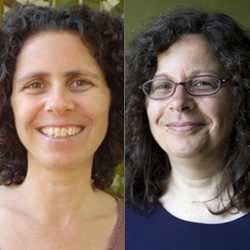
Search Results: helping
-
Tolerating reactivity, name-calling, blaming, guilt-tripping, or stonewalling can lead to resentment and hurt. Plus, the more you stay in a reactive dynamic, the more you are likely to reinforce the pattern. Setting life-serving boundaries around reactivity is about letting another know that you aren’t going to participate in that kinds of dynamics. This means knowing what helps with handling difficulties and asking for that.
-
Yvette Erasmus shares that we can translate or shift how we hear right and wrong language. We can use the cue - What is needed? I wonder what they are needing? This helps direct my attention to more relationality.
-
Join certified CNVC trainers Jim and Jori Manske to explore the relationship between gratitude and Nonviolent Communication as a way to learn and practice NVC.
-
-
-
Sylvia Haskvitz uses 20+ years of experience to introduce the core concepts of Nonviolent Communication, leaving you grounded in the basics and ready to make transformative improvements to the quality of your communication.
-
Trainer Tip: "I often hear people say that someone did something because of a need for control. Control is actually a strategy that is often confused with a need."
-
In this audio recording, Miki demonstrates how to stay in a dialogue when you don't trust someone's "yes," how to equalize power between people and how to allow space for others to say "no" to our requests.
-
In this video download, expert parent trainer and author of Parenting From Your Heart, Inbal Kashtan responds to the age-old question: "Why do children do things to annoy parents?"
-
Inbal offers parents and anyone with children in their life a lucid discussion of the important role self-empathy plays in creating healthy, supportive relationships.
-
Speaking the truth creates congruence, which creates trust, facilitating understanding and cooperation. Without truth there is no growth in our relationships and community. If this is true, then what keeps us from speaking our truth?
-
An exploration of four types of feedback: destructive criticism, constructive criticism, feedback by demonstration and dialogue.
-
Connection requests focus on the quality of connection between people instead of on any particular strategy or solution. While the core motivation for a connection request may be connection with the other person, varied internal states and needs may help guide us toward different types of connection requests. Self-connection and understanding of our motivation in making a connection request can therefore greatly support our capacity for discovering and articulating what specifically we want from the other person that we believe may contribute to connection.
-
How do we live each and every day from the “living energy of needs” – with the unimpeded fullness of life’s energies flowing through us, regardless of the conflicts or life circumstances we may be experiencing? Through developing deep self-compassion. How can we experience our inner world from a place of utter and total compassion? When we practice compassionate self-care, we create an inner spaciousness that allows our life’s energies to flow. In that spaciousness both healing and inner transformation occurs. Robert’s work explores the interweaving of two co-intentions—to live life from the fullness of the “beauty of needs” and to approach every experience with deep compassion.
-
In this telecourse recording, you'll learn to differentiate between cerebral empathy and intuitive empathic listening. Awaken your sensitivity towards body sensations and inner feelings to recognize the clear inner clues to your empathic connection.
-
It is time to create true transparency, empathy and trust in your intimate relationships! In this inspiring telecourse recording, Kelly Bryson combines humor, music, group readings and experiential exercises to help you realize the fulfilling and intimate relationships you long for.
-
This telecourse recording provides an experience with the language, skills and consciousness of NVC applied to mediating all types of conflict whether you are one of the people in conflict or you are supporting others in conflict.
-
Listen to this short 3 session telecourse recording with CNVC Certified Trainer Christine King, and you will learn how to honor the wisdom that your anger, fear, shame and other BIG emotions have for you.
-
Kelly Bryson, veteran and loved CNVC Certified Trainer, brings decades of experience to help you jumpstart your Mastery of Fear by using his unusual blend of experiential exercises, humor, empathy, original songs and stories, transformational truth telling, creativity and FRED (Frequency Resonation Energy Dynamics).
-
Listen to the Universe is a fun group exercise to explore how we focus our attention and interpret what we experience.



















